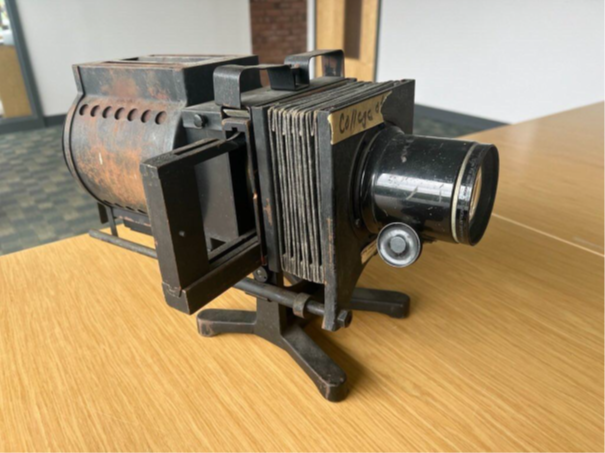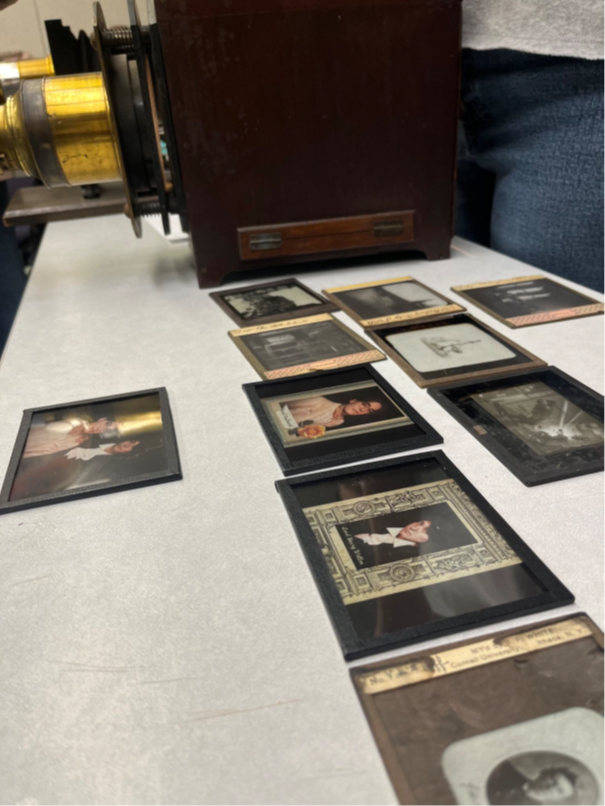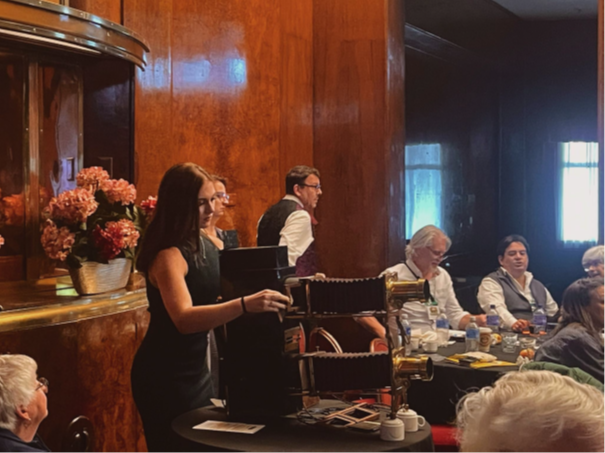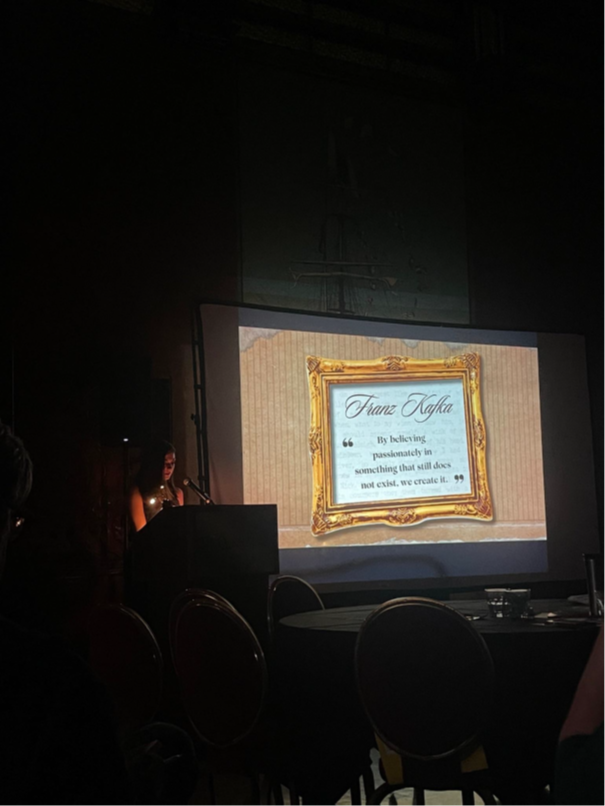Loyola alumna Emma Straus (’24) recently attended the 2024 Magic Lantern Society Convention in Long Beach, California. Straus was part of a panel of speakers and presented her personal experience with magic lantern performing using materials from the Notre Dame of Maryland University archives: a collection of lantern slides that belonged to the late Fr. Griffin, and a functioning magic lantern.

I was invited to attend the 2024 Magic Lantern Society Convention, held in Long Beach, California, on the historic Queen Mary ship. The convention consisted of artists, performers, historians, and archivists that provided presentations, performances, and other academic talks over the course of a packed three-day convention. Magic lanterns date back to the 1600s and are among the earliest pre-cinema entertainment. The conference centered around the ways in which magic lanterns have endured as presented through a series of modern and re-imagined performances, as well as fresh historical research to shed new light on old technology.

My research stemmed from a magic lantern performance presented by Loyola’s 2023 Honors English Seminar, which I was fortunate enough to be a part of. The students were interested in putting together their own magic lantern show after witnessing the work of magic lanternist Melissa Ferrari. In my approach to the magic lantern, I discussed the relevance of magic lanterns as a means of establishing creative connection in a way that might be lost within new technologies. Part of this process included getting to know a magic lantern as something more than a piece of history that sits on a shelf. The seminar students were fortunate enough to work with a magic lantern that was housed within the Loyola Notre Dame Library’s archives. Not only this, but a collection of slides was waiting to be uncovered as well.

I found myself in the library with a few of my peers, poring through a massive collection of lantern slides used by a Notre Dame of Maryland chemistry professor, the late Fr. Griffin, in his lectures and other academic affairs. At the convention, I highlighted the ways this physical form of creation offered a new world of connection that we might have missed if we had been using any other material. Not only had we spent hours poring through different, carefully wrapped slides, but we also spent time rehearsing and getting to know the different complex mechanisms of the lantern itself. Through the process of putting together our show, there was more to be taken away than simply entertaining our audience that evening. Within this unique form of entertaining, we had taken something tangible, such as our physical slides and lantern, and produced something intangible. Something that was held in our hands created the illusions that were projected as part of our show. The way we were creating came in a deceptively bodily form. Through our experience there were times where we had to be hunched over the lantern, times where we had to carry heavy machinery around our campus, moments where we were getting to know the slip slides and lever slides, and through this very physical way of creating, there was an irony in producing an illusion.

We had created an illusion and yet, we witnessed the audience laughing, gasping, and wondering just how we were able to do what we were doing. Through an illusion, we created real connection. Because magic lantern shows happen in real time, the audience becomes a part of the show in the same way the lantern slides are, and because we were so close to the audience while performing, we were able to witness in real time the connection we had established.

Creativity, in any form, takes something that is not yet real and makes it so. In my time spent with the slide collection and magic lantern, I was given the unique opportunity to create in a way that may have seemed obsolete or long in the past and yet was able to reach modern audiences in a concrete way. The magic of magic lanterns is their capacity to stretch across time and generate a very human form of creation and entertainment that echoes in film and media today. The 2024 Magic Lantern Society Convention allowed me to bring this aspect of magic lanterning to light, as well as witness the ways these lanterns are still utilized for education, creativity, and entertainment.